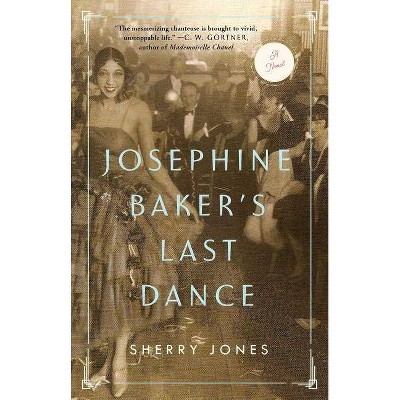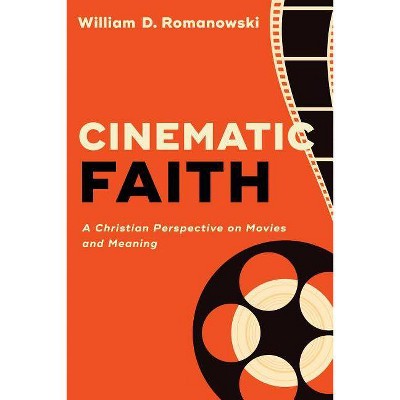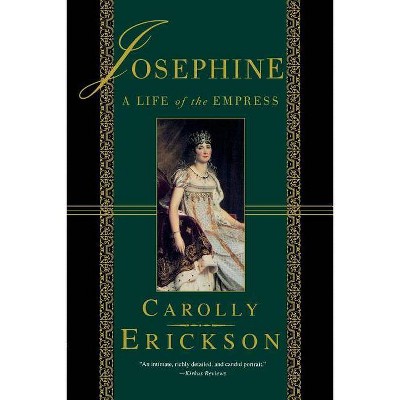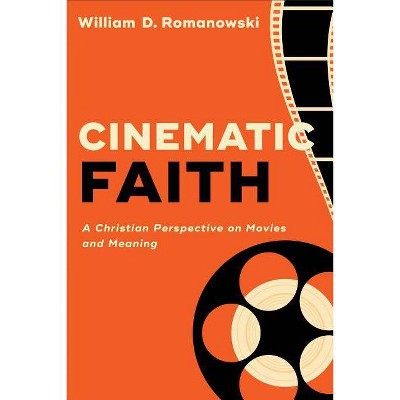Josephine Baker's Cinematic Prism - by Terri Simone Francis (Paperback)
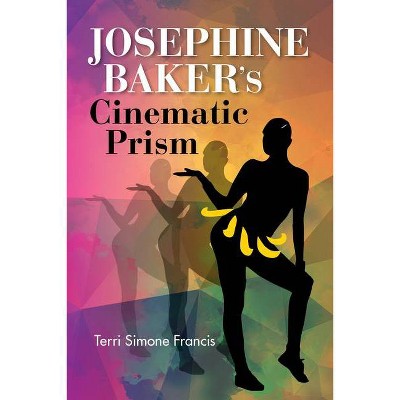
Similar Products
Products of same category from the store
AllProduct info
<p/><br></br><p><b> About the Book </b></p></br></br>Examining an unexplored aspect of Baker's career, Josephine Baker's Cinematic Prism deepens the ongoing conversation about race, gender, and performance in the African diaspora.<p/><br></br><p><b> Book Synopsis </b></p></br></br><p><b>Josephine Baker, the first Black woman to star in a major motion picture, was both liberated and delightfully undignified, playfully vacillating between allure and colonialist stereotyping. <br/></b> <br/>Nicknamed the Black Venus, Black Pearl, and Creole Goddess, Baker blended the sensual and the comedic when taking 1920s Europe by storm. Back home in the United States, Baker's film career brought hope to the Black press that a new cinema centered on Black glamour would come to fruition. In <i>Josephine Baker's Cinematic Prism</i>, Terri Simone Francis examines how Baker fashioned her celebrity through cinematic reflexivity, an authorial strategy in which she placed herself, her persona, and her character into visual dialogue. Francis contends that though Baker was an African American actress who lived and worked in France exclusively with a white film company, white costars, white writers, and white directors, she holds monumental significance for African American cinema as the first truly global Black woman film star. Francis also examines the double-talk between Baker and her characters in <i>Le Pompier de Folies Bergère</i>, <i>La Sirène des Tropiques</i>, <i>Zou Zou</i>, <i>Princesse Tam Tam</i>, and <i>The French </i>Way, whose narratives seem to undermine the very stardom they offered. In doing so, Francis artfully illuminates the most resonant links between emergent African American cinephilia, the diverse opinions of Baker in the popular press, and African Americans' broader aspirations for progress toward racial equality. <br/> <br/>Examining an unexplored aspect of Baker's career, <i>Josephine Baker's Cinematic Prism</i> deepens the ongoing conversation about race, gender, and performance in the African diaspora.</p><p/><br></br><p><b> Review Quotes </b></p></br></br><br><p>The ability of a figure to be discovered and rediscovered with new fascination and excitement time and again is the mark of a true legend. The life and career of the international sensation and multitalented performer Josephine Baker has thus been solidified. . . . <i>Josephine Baker's Cinematic Prism</i> follows through with exactly what it announces as its goal in its first few pages: to treat Baker with care and seriousness as a producer of knowledge (4). . . . Baker's cinematic prism engenders a way of knowing, thinking, and seeing that transcends the limits of space-time and productively reconsiders how Black women's labor can be assessed and valued. The method through which Francis conducts this thoughtful, yet rigorous, analysis will hopefully inspire those who evoke Baker in the future to do so in the same collaborative spirit.</p>--Philana Payton "Film Quarterly"<br><br><p>This academic, but accessible deep dive into her film career and the impact of her image in the movies is thorough in considering what influenced her, how she reflected the current culture, and how she continues to be an influence today. Francis explores how Baker's performance style was inspired by African dance and blues singers like Ethel Waters, Ma Rainey, and Clara Smith (with whom she performed in the US). She put her own comic lens on these varied influences and presented her take with a boldness that would later show in the style of top stars like Diana Ross and Beyoncé. . . . This is an impressively thorough examination of a relatively short period of Baker's career that nevertheless had a significant impact on her image and legacy.</p>--Kendahl Cruver "A Classic Movie Blog"<br><br><p>Expertly crafted, <i>Josephine Baker's Cinematic Prism</i> illustrates the most prominent links between Black cinema, conflicting opinions of Baker in the popular press and the broader aspirations for progress towards racial equality.</p>--Bella Morais "The Root"<br><br><p><i>Josephine Baker's Cinematic Prism</i> explores Baker's celebrity and ability to have such a hold in the Black film industry even while working almost exclusively with white directors, actors and crew in white--specifically European--spaces. Francis examines the dialogue between Baker and the characters she portrayed, particularly those whose narratives seemed to undermine the stardom they offered. Expertly crafted, <i>Josephine Baker's Cinematic Prism</i> illustrates the most prominent links between Black cinema, conflicting opinions of Baker in the popular press and the broader aspirations for progress towards racial equality.</p>-- "The Root"<br><br><p>An insightfully informative work of meticulous research and painstaking scholarship, <i>Josephine Baker's Cinematic Prism</i> is an extraordinary and unreservedly recommended addition to community, college, and university library Cinematic History, African-American Studies, and American Biography collections in general, and Josephine Baker supplemental curriculum studies lists in particular.</p>--James A. Cox "Midwest Book Reviw"<br><br><p>New Josephine Baker biography chronicles her 'labor on screen' as the first 'global' black woman film star. . . . <i>Josephine Baker's Cinematic Prism</i> is available now and details the early days of Baker's stunning career.</p>--Rae Williams "Atlanta Black Star"<br><p/><br></br><p><b> About the Author </b></p></br></br><p>Terri Simone Francis is Associate Professor and Director of the Black Film Center/Archive at Indiana University.</p>
Price History
Price Archive shows prices from various stores, lets you see history and find the cheapest. There is no actual sale on the website. For all support, inquiry and suggestion messagescommunication@pricearchive.us
